| Srl | Item |
| 1 |
ID:
124540
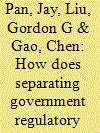

|
|
|
|
|
| Publication |
2013.
|
| Summary/Abstract |
This paper evaluates the effect of regulatory reform separating the operational control and regulatory oversight of public hospitals in China. Using city-level data and a difference-in-difference (DID) model, this paper estimates the changes in healthcare supply in response to the regulatory reform. Based on the DID estimates, in Weifang between 2006 and 2008, the reform led to a 39.3% increase in the number of doctors per 10,000 residents and 40.1% increase in the number of health workers per 10,000 residents. Similarly, in Suzhou between 2005 and 2008 the reform led to increases of 60.5%, 30.8% and 36.6% for hospital beds, doctors and health workers per 10,000 people, respectively. Moreover, the magnitude of this impact appears to increase over time. Furthermore, the effect of the reform is consistent regardless of whether the separation reform takes place inside or outside the government. These findings lead us to conclude that the government should focus only on the regulation of healthcare markets, while leaving hospital operation to the free market.
|
|
|
|
|
|
|
|
|
|
|
|
|
|
|
|
| 2 |
ID:
101426
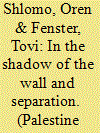

|
|
|
| 3 |
ID:
006430
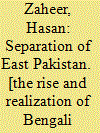

|
|
|
|
|
| Publication |
Karachi, Oxford University Press, 1994.
|
| Description |
xvii, 511p.pbk
|
| Standard Number |
0195775929
|
|
|
|
|
|
|
|
|
|
|
|
Copies: C:1/I:1,R:0,Q:0
Circulation
| Accession# | Call# | Current Location | Status | Policy | Location | IssuedTo | DueOn |
| 037510 | 954.91/ZAH 037510 | Main | Issued | General | | L0015 | 09-Feb-2024 |
|
|
|
|
| 4 |
ID:
115314
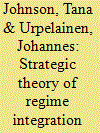

|
|
|
| 5 |
ID:
193486
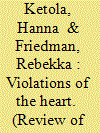

|
|
|
|
|
| Summary/Abstract |
This article examines ‘parental harm’ – a harm that occurs when a parent loses or faces the threat of losing a child. We contend that the manipulation and severing of relationships between parents and children has played a central role in war and oppression across historical contexts. Parental harm has long-term and pervasive effects and results in complex legacies for carers and their communities. Despite its grave impact, there is little research within International Relations into parental harm and understanding of its effects. We conceptualise parental harm through two frames – the ‘harm of separation’ and ‘harm to the ability to parent’ – and theorise gendered dimensions of how it is perpetuated and experienced. As such, we advance feminist understandings of family as a gendered institution that shapes the conduct of war and institutionalises racialised oppression. Our conception of parental harm offers novel insights into the relationship between intimate relations, the family, and state power and practices. We illustrate our conceptual arguments through two examples: the control and manipulation of family in antebellum slavery in the United States and the targeting of Tamil children in disappearances in Sri Lanka. These examples demonstrate the pervasiveness of parental harm across contexts and forms of violence.
|
|
|
|
|
|
|
|
|
|
|
|
|
|
|
|